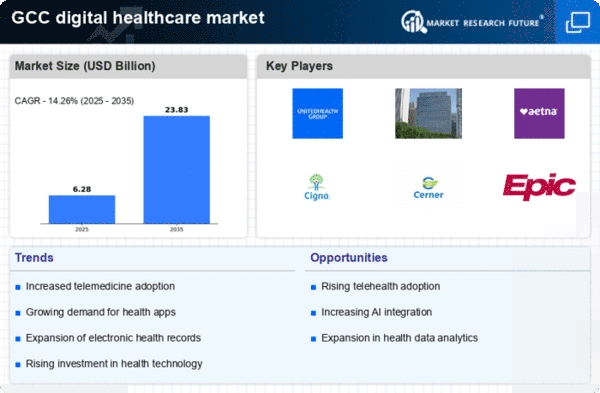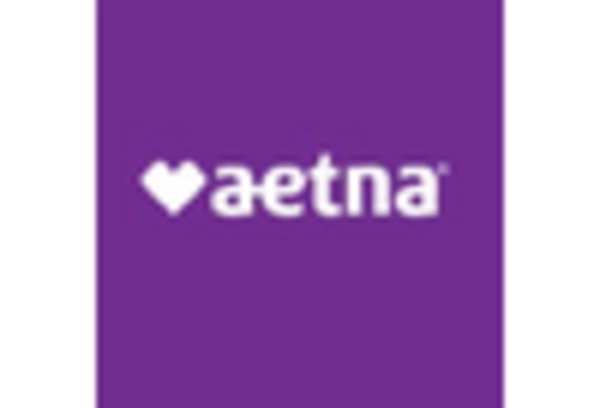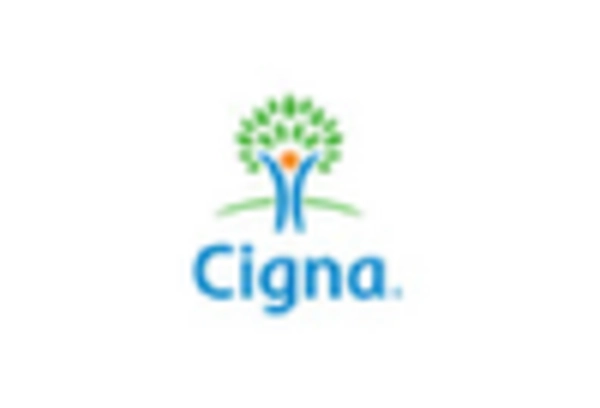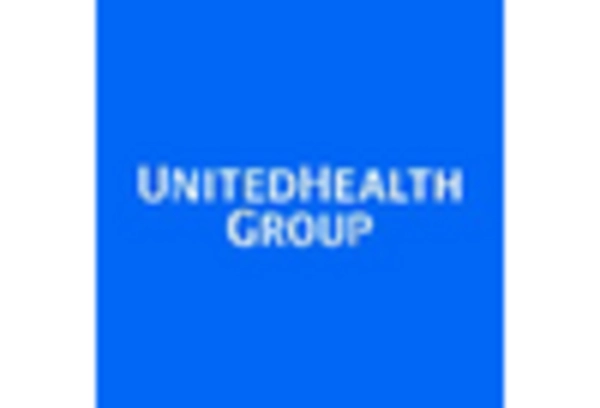Government Initiatives and Support
Government initiatives play a crucial role in shaping the digital healthcare market. In the GCC, various governments are actively promoting digital health solutions through strategic investments and policy frameworks. For instance, initiatives aimed at enhancing healthcare infrastructure and digital literacy are being implemented to facilitate the adoption of digital health technologies. The GCC governments have allocated substantial budgets, with estimates suggesting that healthcare spending could reach $100 billion by 2025. This financial backing is likely to foster innovation and encourage private sector participation in the digital healthcare market. Furthermore, regulatory frameworks are being established to ensure the safe and effective deployment of digital health solutions, thereby instilling confidence among stakeholders and driving market growth.
Increased Focus on Health Data Security
As the digital healthcare market expands, the emphasis on health data security becomes increasingly paramount. With the rise of telehealth and electronic health records, safeguarding patient information is critical. In the GCC, healthcare organizations are investing heavily in cybersecurity measures to protect sensitive data from breaches. Recent reports indicate that cyberattacks on healthcare systems have surged by 50% in the region, prompting a reevaluation of security protocols. Consequently, healthcare providers are adopting advanced encryption technologies and robust authentication processes to mitigate risks. This heightened focus on data security not only protects patients but also enhances trust in digital healthcare solutions, thereby driving market growth. The digital healthcare market is likely to see a proliferation of security-focused innovations. Organizations strive to comply with stringent regulations and safeguard their reputations.
Rising Demand for Remote Patient Monitoring
The digital healthcare market is experiencing a notable surge in demand for remote patient monitoring solutions. This trend is driven by the increasing prevalence of chronic diseases in the GCC region, which necessitates continuous health tracking. According to recent data, approximately 30% of the population in GCC countries suffers from chronic conditions, leading to a heightened need for effective monitoring tools. Remote monitoring technologies enable healthcare providers to collect real-time data, enhancing patient engagement and adherence to treatment plans. This shift not only improves health outcomes but also reduces hospital readmission rates, thereby alleviating pressure on healthcare systems. As a result, the digital healthcare market is likely to expand significantly, with investments in innovative monitoring devices and platforms expected to rise in the coming years.
Emergence of Personalized Medicine Solutions
The digital healthcare market is witnessing a transformative shift towards personalized medicine solutions. Advances in genomics and biotechnology are enabling healthcare providers in the GCC to tailor treatments based on individual patient profiles. This approach not only enhances treatment efficacy but also minimizes adverse effects, leading to improved patient outcomes. Recent studies suggest that personalized medicine could reduce healthcare costs by up to 20% by optimizing treatment plans and reducing trial-and-error prescribing. As healthcare systems increasingly recognize the value of personalized approaches, investments in digital platforms that support genomic data analysis and patient-specific treatment plans are likely to rise. Consequently, the digital healthcare market is poised for growth as stakeholders seek to leverage technology to deliver more effective and individualized care.
Growing Acceptance of Mobile Health Applications
The proliferation of smartphones and mobile technology is significantly influencing the digital healthcare market. In the GCC, there is a growing acceptance of mobile health applications, which offer convenient access to healthcare services and information. Recent surveys indicate that over 60% of individuals in the region utilize health-related mobile apps, reflecting a shift towards self-management of health. These applications facilitate appointment scheduling, medication reminders, and access to telehealth services, thereby enhancing patient engagement. The convenience and accessibility provided by mobile health applications are likely to drive further adoption, leading to a more integrated healthcare experience. As a result, the digital healthcare market is expected to witness substantial growth, with developers focusing on creating user-friendly and innovative applications tailored to the needs of the GCC population.
















